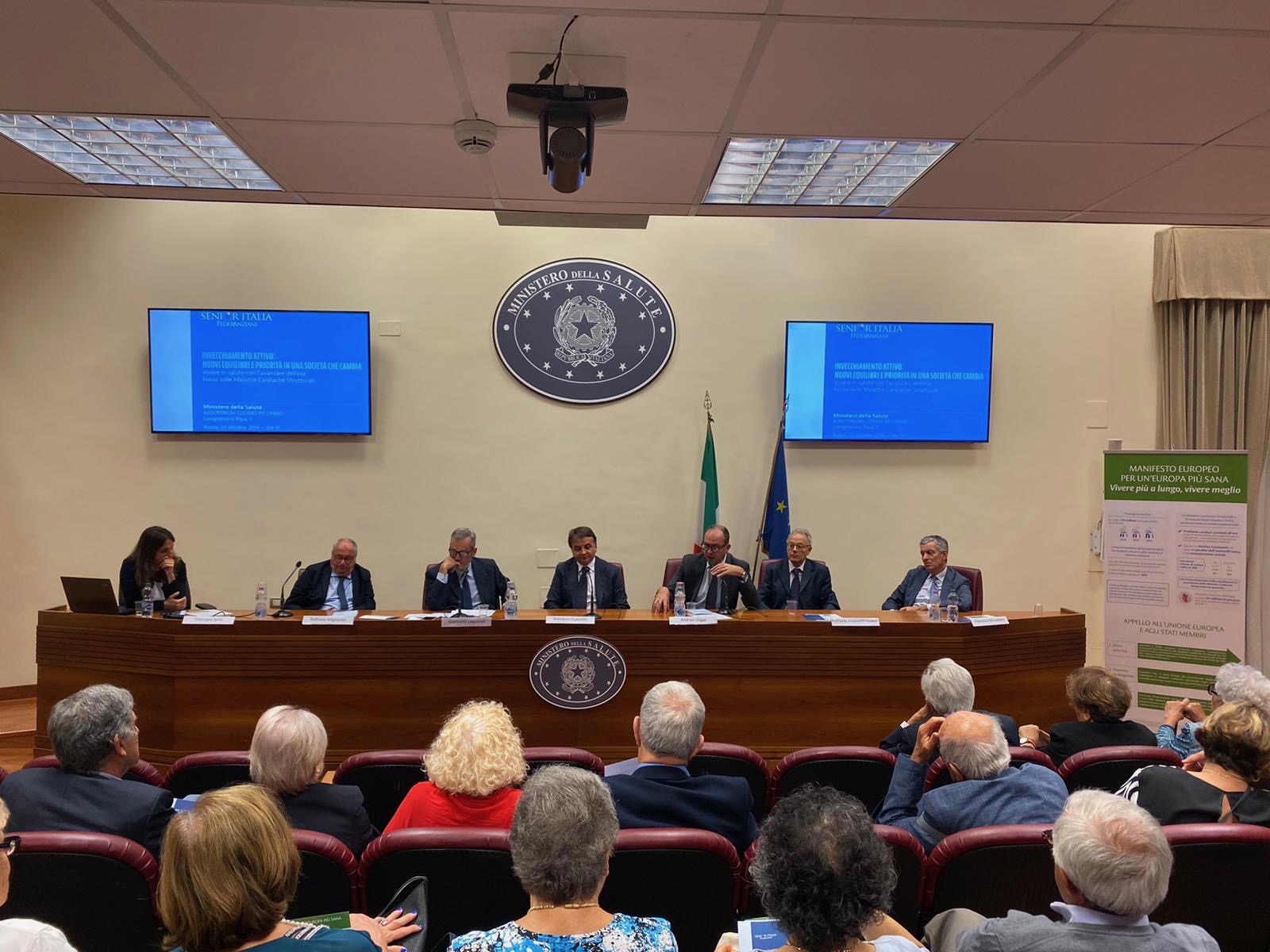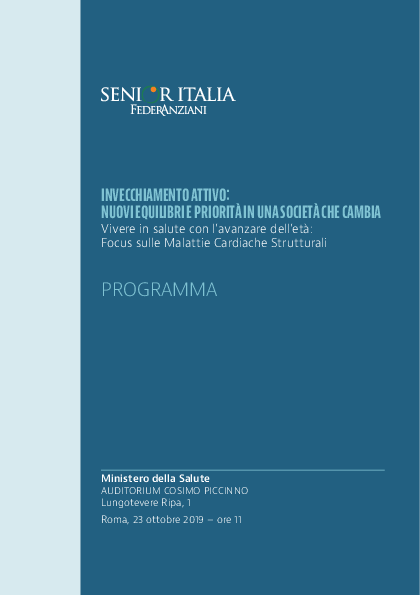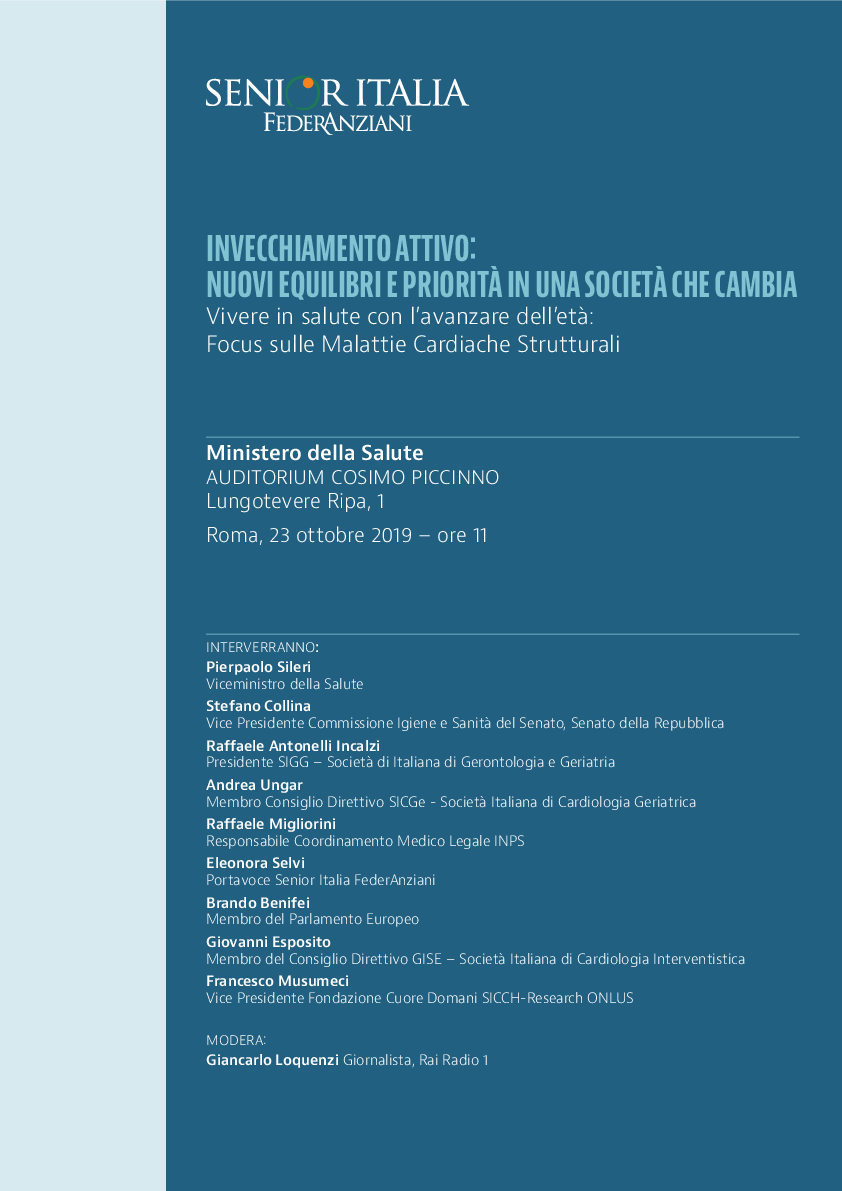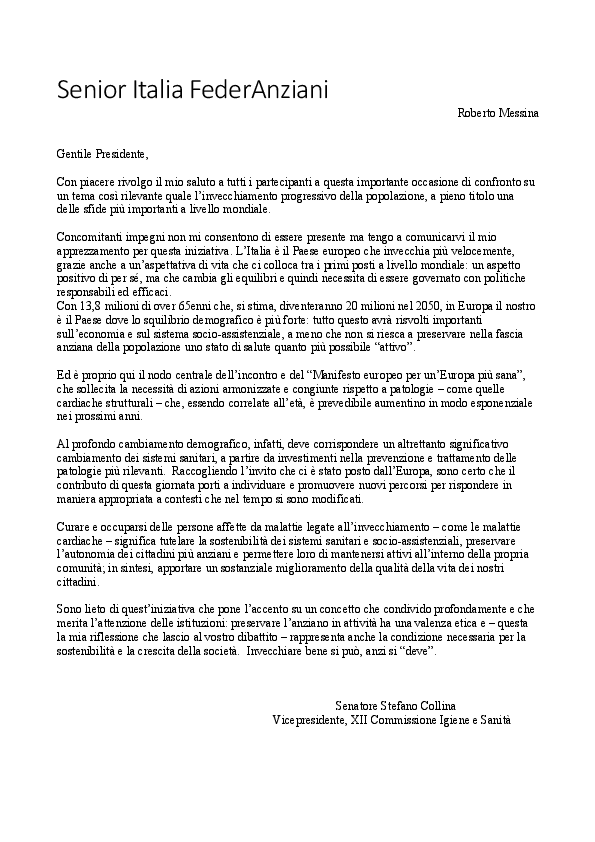A high-level meeting called ‘Active ageing: new balance and priorities in a changing society’ took place in Rome at the Ministry of Health on 23rd November 2019 gathering MPs, institutional representatives, clinical experts and stakeholders from both scientific and civil society to focus on SHD and the relevance of active ageing as a top key-priority for a rapidly changing society such as the Italian one, to achieve the goal of living healthy throughout the aging process, meaning living longer and to the best. The event has been organized by Senior Italia FederAnziani, the Italian national federation of senior associations, within its mission of valuing the role of senior citizens as both social and family-life resources and of favouring healthcare and social policies that concretely promote healthy and active ageing.
Structural Heart Diseases (SHD) are indeed the central issue of the European Manifesto for a healthier Europe drafted out by MEP Brando Benifei urging Member States to join efforts to ensure healthcare policies designed to tackle age-related diseases, among which SHD appear to be the most relevant and numerous, with a highly severe impact in Italy. The Manifesto was presented to the plenary on the occasion and drew a highlighting and enlightening picture summing out the imperatives for Italy as a fastest exponentially ageing country counting up to 12.5% of its over 65 citizens suffering from valvular diseases and forecasted to have 2.5 million SHD patients by 2040.
The sharp constant increase in the elderly segment of the population also represents an unprecedented challenge for the stability of both the economic and the social assistance systems with serious spillovers upon the social security systems and over public economy which need being limited or avoided. A need which is again even more pressing for Italy, as the most rapidly ageing EU area country.
Solutions may only be found through a joint action harmonising effectively, promptly and sustainably all ready-to-lean-on operational plans of action. Prevention, healthy living, active ageing, early diagnosis, therapy and sustainability are the key-points policy-makers have committed to work on to respond the needs of the population throughout its evolution.
In his speech, Vice Minister of Health Pier Paolo Sileri stressed the relevance of these messages while highlighting how far investing in prevention and early diagnosis can actually lead into the virtuous circle of producing long run savings and significantly improving quality of life. VM Sileri also noted that prevention of Structural Heart Disease stands as paradigmatic of a proactively dynamic and hugely more effective approach to the public healthcare system.
Messages to the plenary were sent by Sen. Collina, President of the Italian Senate’s Health Committee, and by Italian MEP Brando Benifei who video-presented the ‘European Manifesto for a healthier Europe’ calling Italy to endorse the initiative and assure its contribution by joining in to provide co-shared efforts to tackle SHD.
Alongside institutional representatives the event was attended by Raffaele Antonelli Incalzi, President of the Italian Society for Gerontology and Geriatrics; Andrea Ungar, Member of the Board of Directors of the Italian Society of Cardiology and Geriatrics; Francesco Musumeci, Vice President, Cuore Domani SICCH-Research ONLUS Foundation; Giovanni Esposito, Member of the Board of Directors of the Italian Society of Interventional Cardiology and incoming President of GISE; Raffaele Migliorini, Head, Legal Medicine Coordination service, INPS (National Institute of Social Security).
Summary translation of the letter from Senator Stefano Collina, President of XII Senate Commission on Hygiene and Health to the assembly
The 13.8 million European citizens presently aged over 65 will rise to 20 mln by 2050, with a subsequent increased demographic imbalance and a growingly stronger impact over economy, as well as on the healthcare and social assistance systems. Safeguarding the good health of senior citizens and keeping them active means protecting the stability of those systems and preserving the growth of our society. This is the vision according to which the whole system must be rethought and adjusted. An equally significant change in healthcare systems must subsequently correspond to the deep demographic change, starting from investments to be made in prevention and the cure of most relevant pathologies, such as heart diseases.




